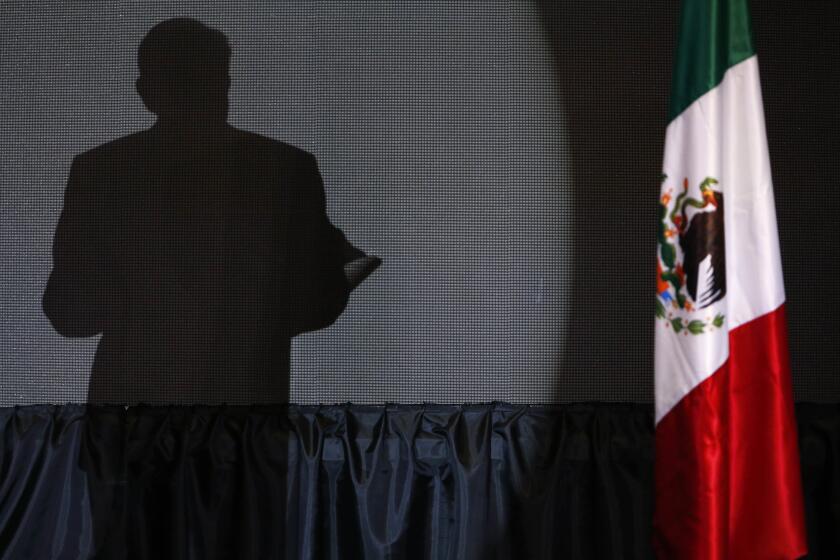Baltimore Goes on the Alert for Drug Benefit Snafus
With the federal government still struggling to explain the ins and outs of the Medicare prescription benefit that takes effect Jan. 1, officials in one city have come up with an inventive approach of their own: They are treating the complex program as if it were a massive outbreak of disease and mobilizing local resources accordingly.
Today, the Baltimore health department is expected to announce that it is activating its emergency surveillance and response system. It was created primarily to deal with unexpected health threats such as a bird flu outbreak or an anthrax attack. But in January, health officials will use it to monitor the federal government’s rollout of the $700-billion-a-year drug benefit for the elderly and to deal with problems such as interruptions in coverage.
“We are treating it like a potential threat to public health in Baltimore,” Dr. Joshua Sharfstein, the health commissioner, said in an interview.
Baltimore has a high percentage of citizens living near or below the poverty line, and Sharfstein’s main concern is that seniors now covered by Medicaid will be automatically switched into private drug plans that may not provide some of the medications they have been receiving. These seniors are more likely to be in poor health and suffer from serious medical problems, including mental impairment, than the average Medicare beneficiary, experts say.
In California, the state health department is setting up a command center staffed by experts -- including a pharmacist -- to troubleshoot problems with the transition. The operation will be attached to a call center that now serves Medi-Cal -- as Medicaid, the program that helps pay for healthcare for the poor and disabled, is known in California. It will handle questions and complaints from 8 a.m. to 8 p.m. Monday through Friday beginning in 2006.
Sharfstein said that he would like to see the transition go smoothly, but that he was troubled that hundreds of seniors in Baltimore -- and perhaps tens of thousands nationwide -- could fall through the cracks.
An estimated 28,000 low-income seniors and disabled people in the city are to be enrolled in the new benefit automatically, including 20,000 on Medicaid and 8,000 in a state pharmacy assistance program. A recent report by the congressional Government Accountability Office cautioned that Medicare’s existing safeguards for 6 million seniors nationally who are to be switched over automatically are not foolproof. A group in New York has filed suit to slow the transition.
Under the Baltimore program, the health department will set up a unit that pharmacists can call 24 hours a day if they can’t resolve a problem in getting medicines for a covered beneficiary.
“The scope, abruptness and complexity of the switch to [the new Medicare benefit] are unprecedented,” said a city planning document that described the program. “Problems with this transition could lead to interruption in medication regimens, emergency medical conditions and premature nursing home placement.”
Once contacted, city officials will reach the beneficiary’s prescription plan, as well as Medicare, to try to resolve the problem. As a last resort, the city will pay for an emergency prescription for low-income residents, although it has set aside only $50,000 for that purpose.
The health department also will monitor consumer complaints about the new drug plans “to see if particular private plans are not playing by the rules,” Sharfstein said. And it will scan hospital data for signs of any increase in emergency room visits because beneficiaries have gone without medications.
More to Read
Sign up for Essential California
The most important California stories and recommendations in your inbox every morning.
You may occasionally receive promotional content from the Los Angeles Times.










